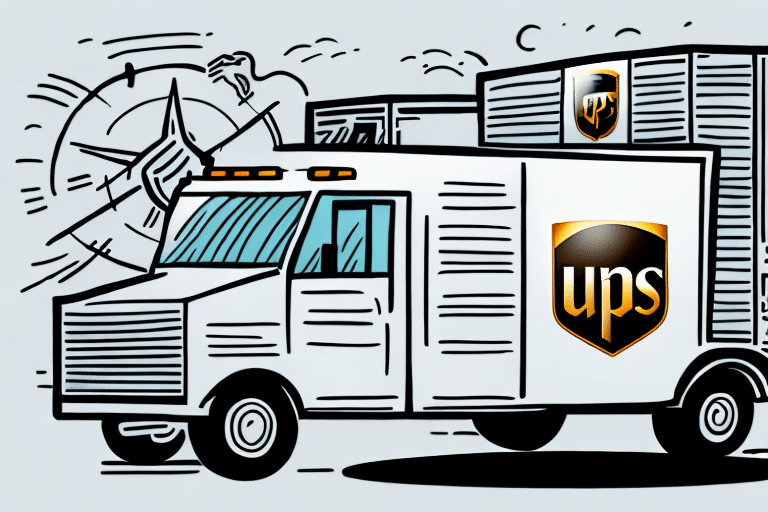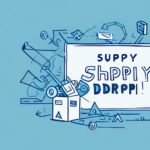How to Use Blind Ship with UPS WorldShip
Are you looking to ship products without sharing your supplier’s information with the customer? Blind shipping might be the perfect solution for you, and when it comes to using this method, UPS WorldShip has got you covered. In this article, we’ll walk you through step-by-step on how to use blind ship with UPS WorldShip—from understanding the concept to best practices.
Understanding Blind Shipping
What is Blind Shipping?
Blind shipping, also known as “drop shipping,” refers to a method of shipping where the supplier sends a product to the customer without revealing their identity or origin to the recipient. The supplier and the customer agree on the product and shipping details, and the supplier transacts with a third-party shipping provider like UPS to handle the physical delivery of the product. For more detailed information on drop shipping, refer to the Shopify Drop Shipping Guide.
Benefits of Blind Shipping
- Enhanced privacy for suppliers and customers
- Protection of business relationships
- Streamlined supply chain management
- Ability to scale without managing inventory
- Expansion into new markets without a physical presence
According to a Statista report, the drop shipping market is expected to grow significantly, highlighting its increasing popularity among small businesses.
Why Choose UPS WorldShip for Blind Shipping
Enhanced Privacy and Confidentiality
Using blind shipping with UPS WorldShip ensures that your customers’ information remains confidential. The recipient’s address and contact information are not visible on the shipping label or packing slip, which helps protect your customers’ privacy. This is particularly important for businesses that handle sensitive or confidential products, such as medical supplies or legal documents.
Seamless Integration with Logistics
UPS WorldShip offers seamless integration with existing logistics and shipping processes, allowing businesses to manage their shipments efficiently. The software supports batch processing, automated shipping, and real-time tracking, which enhances operational efficiency.
Reliable Delivery and Tracking
UPS provides reliable delivery services with comprehensive tracking capabilities. Businesses can monitor their shipments every step of the way, ensuring that packages arrive on time and in good condition. This reliability is crucial for maintaining customer trust and satisfaction.
Setting Up a Blind Shipment in UPS WorldShip
Step-by-Step Configuration
- Open the UPS WorldShip software and log in with your credentials.
- Navigate to the “Ship To” section and enter the recipient’s address and contact information.
- Select the “Blind Shipment” option in the shipping details.
- Enter the shipment details, ensuring that no supplier information is included on the label or packing slip.
- Print the shipping label and schedule a package pick-up with UPS.
Following these steps will ensure that your blind shipment is configured correctly, maintaining the anonymity of your supplier.
Best Practices for Blind Shipping
- Double-check recipient’s address and shipping details to avoid misdelivery.
- Use sturdy packaging materials to protect the contents during transit.
- Ensure all labels and packing slips do not reveal the supplier’s identity.
- Communicate clearly with customers about the nature of the blind shipment.
- Utilize UPS tracking tools to monitor the shipment’s progress.
Common Mistakes to Avoid
Improper Labeling
Failing to properly label the shipment can reveal the supplier’s identity or lead to delivery issues. Always ensure that labels only contain necessary recipient information without any supplier details.
Inadequate Communication
Not informing the recipient that the shipment is a blind ship can cause confusion and delays. Provide customers with tracking information and what to expect regarding the shipment’s source.
Poor Packaging
Using inadequate packaging materials can result in damaged goods upon arrival. Invest in high-quality packaging to ensure that products reach customers in excellent condition.
Advantages of Blind Shipping with UPS WorldShip
- Maintains supplier confidentiality, protecting business interests.
- Streamlines logistics by leveraging UPS’s robust shipping infrastructure.
- Reduces the handling burden on your business, allowing you to focus on core activities.
- Enhances customer privacy, building trust and loyalty.
By leveraging UPS WorldShip for blind shipping, businesses can enhance their operational efficiency and maintain strong supplier and customer relationships.
Conclusion
Blind shipping with UPS WorldShip is an effective way to maintain privacy and anonymity while shipping products. By following these guidelines, you’ll be equipped to create successful blind shipments with ease and efficiency. Remember to check the “Blind Shipment” box, double-check your recipient’s address, and select the appropriate shipping method. When you use UPS WorldShip, you’ll have access to all the tools you need to make blind shipping a smooth experience.
Blind shipping is not just for businesses that want to keep their suppliers or customers confidential. It can also be useful for individuals who want to send gifts or packages without revealing their identity. This method helps protect your privacy and prevent unwanted attention or inquiries.
Another benefit of using UPS WorldShip for blind shipping is the ability to track your package every step of the way. You’ll receive updates on the package’s location and estimated delivery time, so you can stay informed and ensure that your shipment arrives on time. This feature is especially helpful for businesses managing multiple shipments simultaneously.
For more information on blind shipping and to stay updated with the latest trends, consider exploring resources such as the UPS Shipping Services and industry reports from Forbes.




















